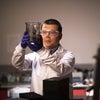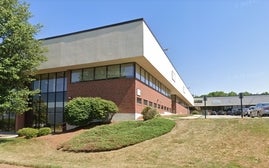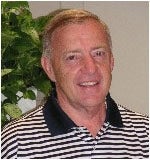Carving Out A Niche In Regenerative Medicine

Holliston-based Harvard Bioscience rolled out a bioreactor in 2010 that's now playing a vital role in the world's first transplants of synthetic and regenerated windpipes in humans.
The latest development, announced in late June, was that surgeons in Russia had performed two successful laryngotracheal transplants, using man-made laryngotracheal scaffolds steeped in the surgery patients' stem cells in Harvard's bioreactors.
The bioreactors have now been used in a handful of successive windpipe transplant surgeries in Sweden and Russia, first using donated "scaffolds," which is the cartilage that gives the windpipe its structure. The stem cells regenerate the tissue on the scaffold, and since they're from the surgery patient and have the same DNA, doctors think there's a lower chance the body will reject the transplant.
The surgeries progressed over years that followed, with doctors using man-made scaffolds built from plastic fibers for the first time last year.
Tom McNaughton, the publicly-traded life sciences company's CFO, said the transplants open up new treatment options for patients with tracheal cancer.
"It's extremely exciting," McNaughton said. "The procedure has shown itself so far to be a cure."
Tracheal cancer is a dire prognosis, he said. The disease has a low survival rate and surgeries to remove tumors can be complicated.
"There really weren't transplant options," he said. "You would have to have a very small tumor in order for them to excise it and stretch the trachea."
Other Organs Could Be Next
Tracheal transplants are still in the early stages, but the field got a boost in Russia two weeks ago when the government there approved a clinical trial on tracheal procedures at Krasnodar Regional Hospital.
McNaughton said he expects Harvard's bioreactors will be used this year in the first tracheal transplant surgery in the United States, which he said would be performed under a humanitarian exemption because the procedure has not been vetted in clinical trials.
Harvard also wants to grow other organs with its bioreactors as well, McNaughton said.
In 2010, the company's bioreactor helped grow a lung that was successfully transplanted into a rat. He said the company wants to "move up the ladder" to the esophagus, lungs and heart valves.
Being able to regenerate organs for transplant is valuable, he said, because donor organs, though they have saved many lives, also come with many challenges.
"The problem with that is they're not in great supply. They're very perishable," he said. "Time is of the essence and it's extremely costly to get those organs."
Correction: The original version of this article incorrectly stated the name of Harvard Bioscience. And it gave an inaccurate title for Tom McNaughton. He is the company's CFO.
Image credit: freedigitalphotos.net
Read more













0 Comments